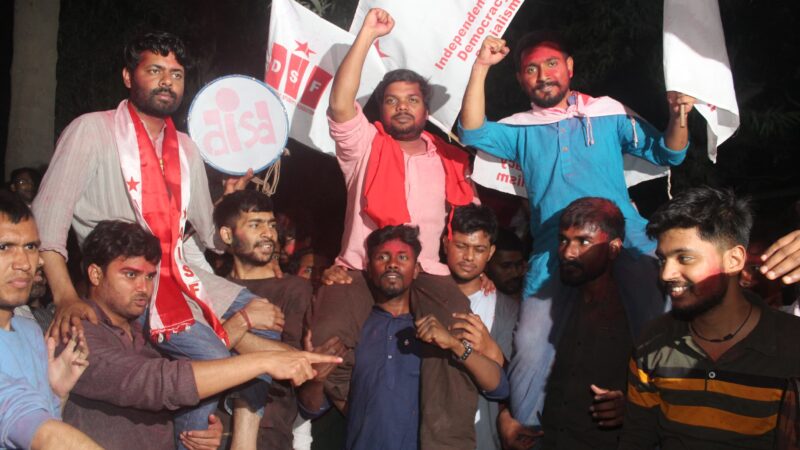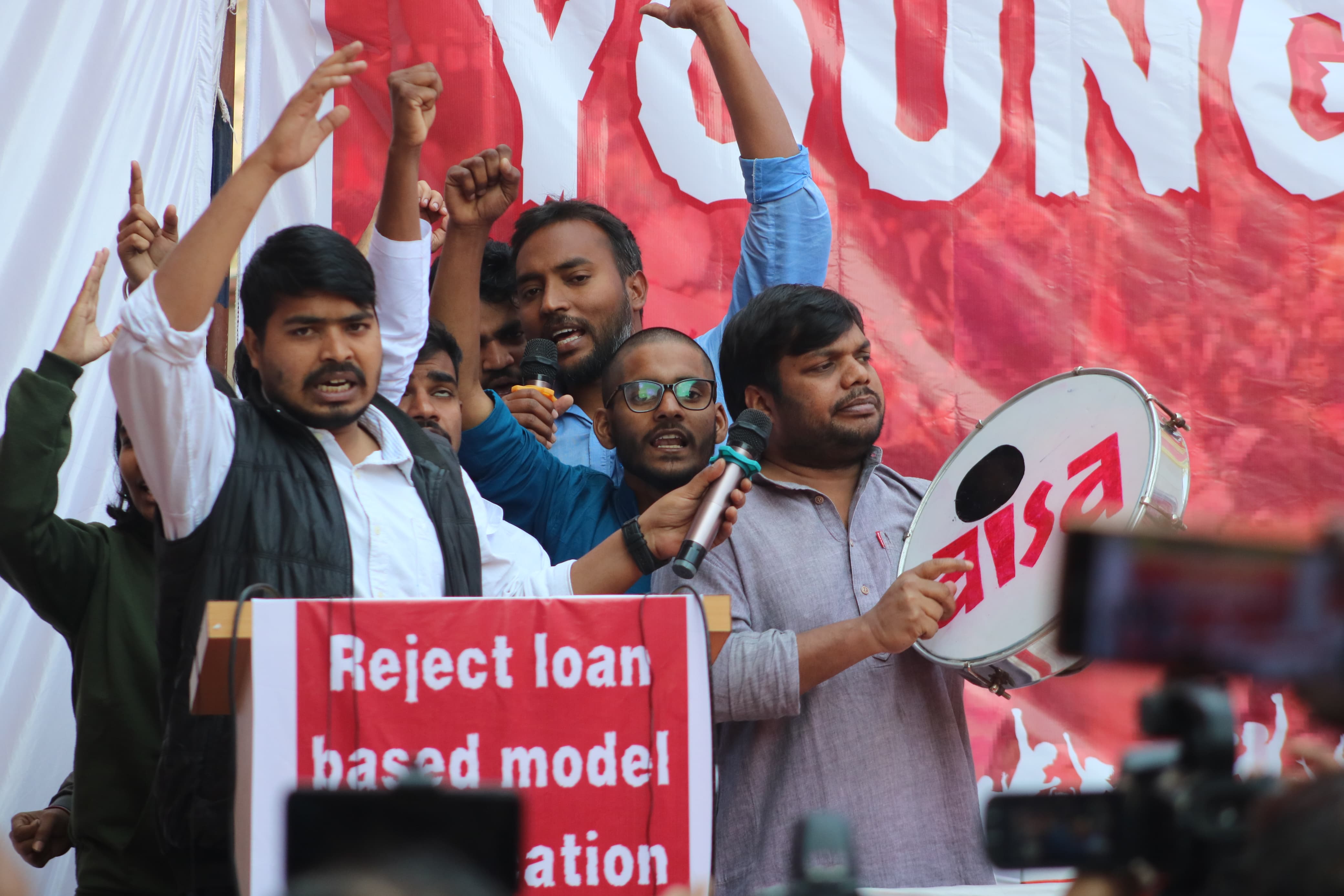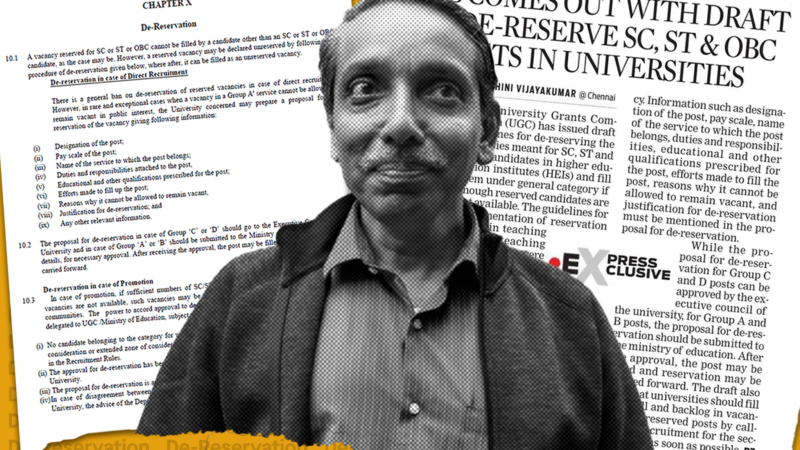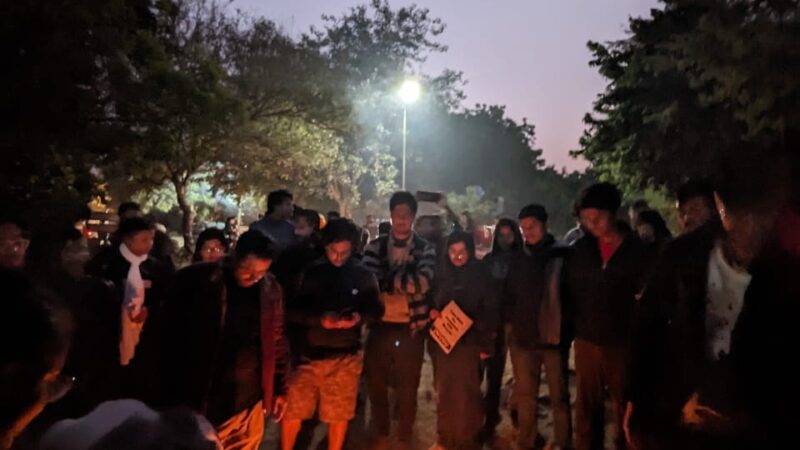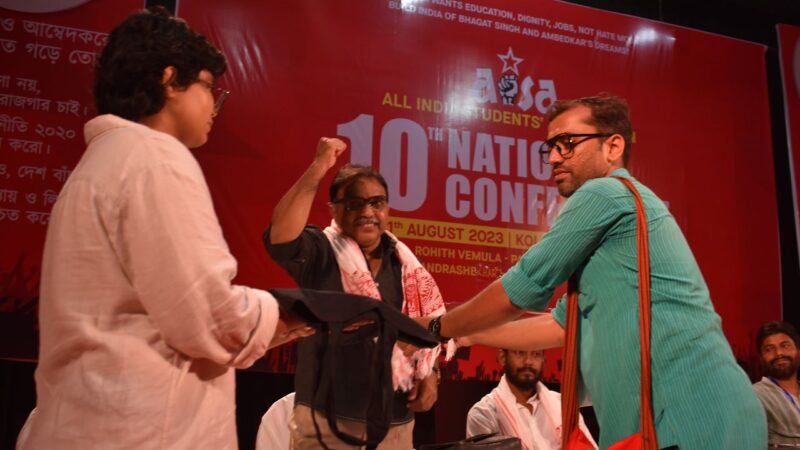Reduce Viva Weightage in PhD Admissions to 10-15%
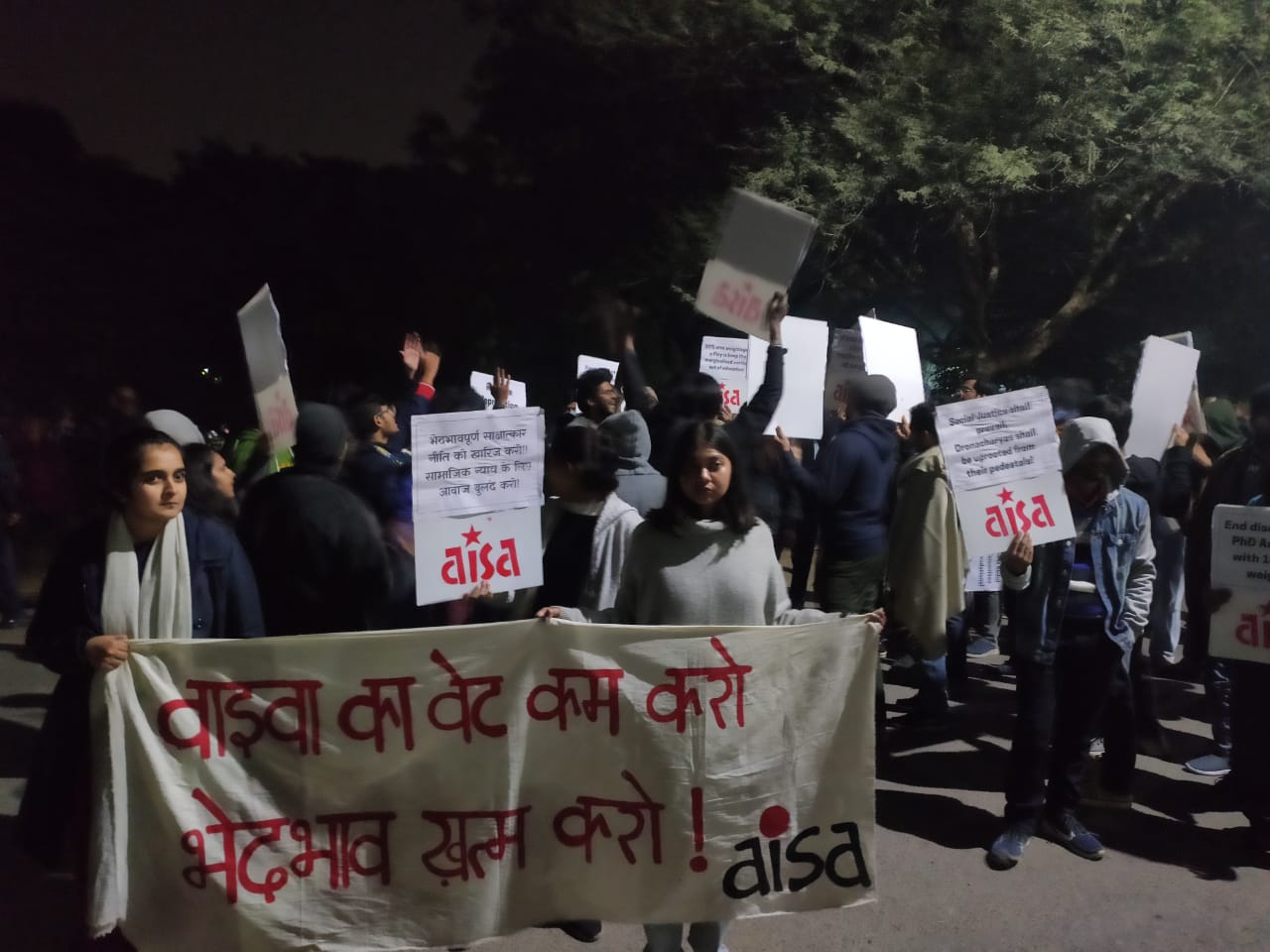
JNU student movement has a legacy of glorious struggles keep the doors of the university open from students from marginalized social and economic backgrounds. In keeping with our commitment to a socially inclusive campus, deprivation points (for women and students from backward areas) were introduced in JNU; we fought back fee hike; we strived together for proper implementation of OBC reservations.
We also pointed out how the viva marks for admission shows a strange distribution with marks clustered either between 0-5 or in the 25-30 range. In the normal course, it is expected that the majority of the students would get average marks between 10-20 with a few very good as well as few very bad performers. Clearly something is very wrong in the way students are being graded in their viva, where they are either “very good” or “very bad”. The obvious explanation is that the interview board is using this bimodal marks distribution to select or reject candidates based on viva-voce alone.
In an atrocious display of discriminatory and exclusionary mindset, despite scoring remarkably well in the objective written exam which has a 70 % Weightage, several students from marginalized backgrounds were denied a PhD seat by giving them a pittance in the name of marks. It is utterly shameful that this casteist axe of meritocracy has been used to destroy the dream of the students hailing from deprived backgrounds.
It is to be also noted that the 30% viva weightage in itself is a flouting of the 1980 verdict of a 5-judge Constitutional bench in the Ajay Hasia Etc. vs. Khalid Mujib Sehravardi & Ors case. It states:
“We are of the view that, under the existing circumstances, allocation of more than 15% of the total marks for the oral interview would be arbitrary and unreasonable and would be liable to be struck down as constitutionally invalid.”
Again in 2011, the Supreme Court in a viva related case of ICAR, upheld the validity of this 1980 verdict in yet another judgment. The need of the hour is therefore to institute an admission criterion which is objective and impartial, which is not determined by subjective and ideological biases.
After a prolonged struggle, the Nafey Committee Report recommends the reduction of viva weightage to 10-15 percent owing to the difference in the viva and written marks and discriminatory pattern of admissions to JNU. Despite this, the weightage of viva marks in JNU continues to be 30% creating the space for subjective biases of various kinds and resulting in deserving students being denied admission. The said report further recommended that all the entrance related data should be put on public domain. However, there is no transparency in the whole process.
Furthermore, in a vicious attempt to crush social justice, the JNU admin has scrapped the deprivation points for women and socially and educationally deprived students.
In light of this subversion of social justice and discrimination, AISA appeals the student community to rise in unison against this institutional ploy to shut the doors of public funded education for students from marginalized backgrounds and collectively build a movement to uphold social justice at all costs.
We demand
- Reduce Viva Marks! Stop Using Viva as a Tool of Discrimination and Exclusion!
- The entire entrance related data to be put on the public domain.
- Immediate implementation of the Abdul Nafey Committee recommendations.
- Reduction of viva weightage from 30 to 10 without any further delay.
- Restoration of Deprivation Points for admission to PhD.
Implementation of our long standing demand for minority deprivation points.
